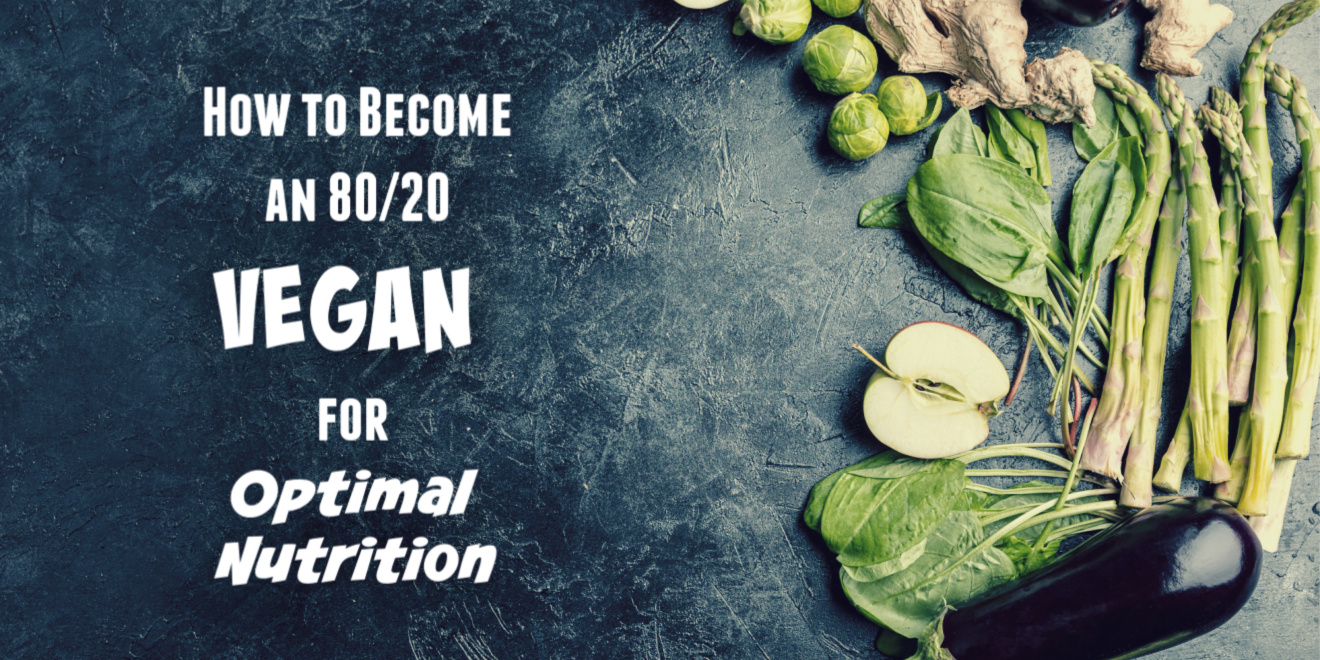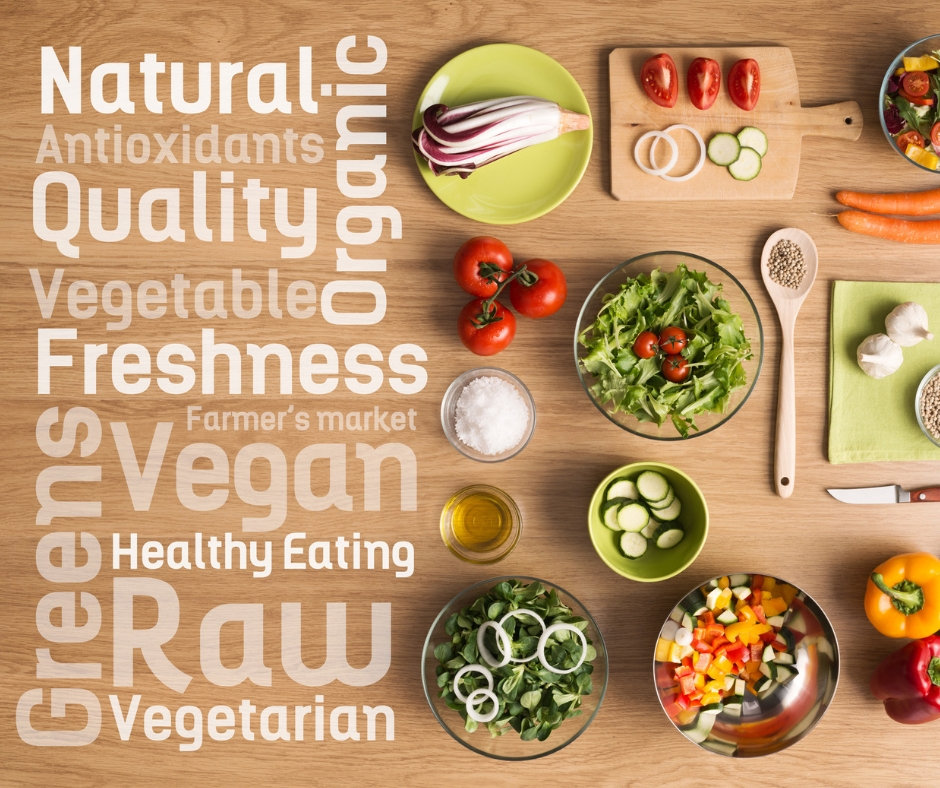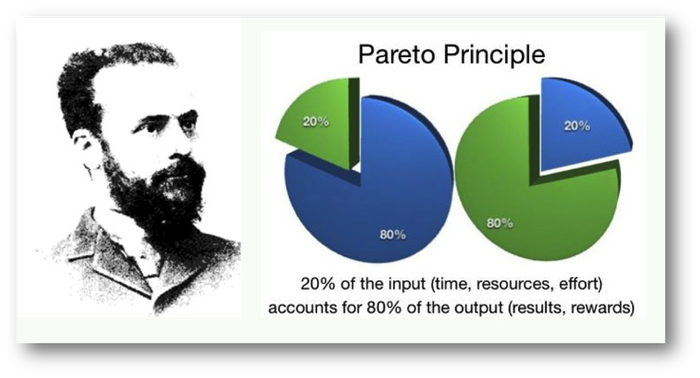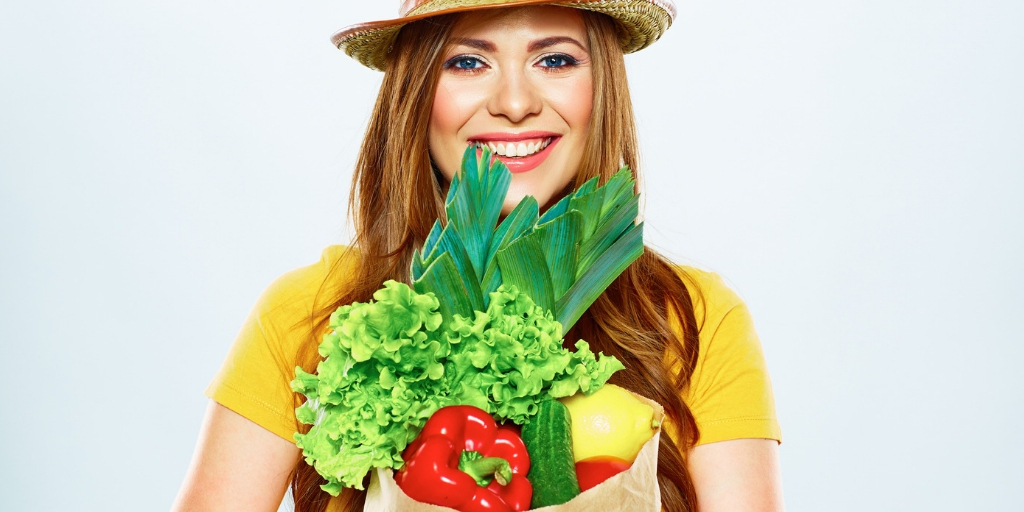How Being a Vegan 80 Percent of the Time will make you Healthier

The reason why most people fail at maintaining a plant-based diet is that of an all-or-nothing attitude. We have this idea that for us to look or feel a certain way, we must be extremely strict and perfect. We think that we must do all the right things at the right time.
The moment we stray even just a little bit from our planned regimen, we go nuts! We think that one small mistake is an excuse to binge. This is the downfall of restriction when we don’t have a balanced approach to eating healthy.

Think of it this way, when you tell yourself you’re not allowed to peek inside the cookie jar or have a piece of milk chocolate, the more you will crave for them. When we tell ourselves that we can’t have something, the more we would want it. The piece of cake in the fridge wouldn’t have bothered you had you not told yourself you couldn’t have it. Your brain is tricky that way.
A similar thing happens when we think about going vegan. When we’ve eaten meat all our lives, meat is a non-issue. But the moment you think you can’t have any meat, that’s the time when you get cravings for it or over-eat it. The idea of removing something we’re used to is so off-putting, many give up before they even try.
This is where the 80/20 approach comes in.
If your goal is to live longer and maintain a healthier life, it’s a great idea to go vegan. But ease yourself into it. You don’t have to force yourself and trick your brain into being obsessed with meat.
You eat nutritious, plant-based, whole foods 80% of the time. And you enjoy any kind of food 20% of the time. (sweets, beer, meat, eggs, fish, etc.) This is a good transition from being a meat-eater to going completely vegan.
80% of the time, you should aim to eat high-quality food. Make sure that the foods are organic and unprocessed. It doesn’t have to be complicated. Just stay away from anything that has extra, unneeded ingredients like food color and preservatives, or those that have been chemically altered.

Examples of high-quality food are lentils, spinach, chia seeds, and yam. Examples of processed foods are pastries, packaged French fries, and microwave-ready food.
Prepare your food in ways that will preserve its integrity. Plants are rich in vitamins, minerals, and life force-giving qualities. You should take full advantage of it. These qualities help fight oxidative stress, slows down aging, and help keep illnesses at bay.
20% of the time, you can indulge in any food you want. Be it a slab of steak, omelet with cheese, ice cream, or a piece of cake. Do this 20% percent because you want to live life to the fullest. Enjoy foods you love eating without guilt.
https://www.youtube.com/watch?v=QxMqoAkeWOI
Your own knowledge that you can still have the foods that you want will make you feel less obsessive. This is why the 80/20 approach is fantastic. It removes the obsessive behavior that is the result of too much restriction, which will make it easier for most people stick to a more plant-based diet.
But don’t overdo it.
Just because you’re entitled to enjoying yourself 20% of the time, it doesn’t mean that you can go crazy. Don’t go eating an entire loaf of cinnamon bread on your own or drink an entire case of beer in one sitting.
That’s still not balanced behavior. It’s also detrimental to your health. Binge-eating will harm your blood sugar, cardiovascular and digestive health, sleeping patterns, and moods. It’s basically just shocking to the body. Still, keep your portions in check and spread your treats throughout the week.
This will be very helpful while transitioning from eating meat, going to the 80/20 approach, to becoming completely vegan.
Make sure that your kitchen is filled with protein alternatives like beans and legumes, whole grains, tofu, or tempeh. This will make it easier for you stick to a more plant-based diet because the ingredients are readily available.

Since preparing plant-based dishes is new to you, expect that it will be challenging at first. So, you don’t get stressed, set aside extra time to learn the ropes. Practice makes perfect. You’ll eventually get used to it, so it won’t be a problem in the future.
Focus on the foods that you can. Like what was discussed above. Don’t trick your brain into obsessive behavior. There are so many plant-based alternatives to foods that you’ve gotten used to. There’s almond milk instead of cow’s milk, there’s almond butter instead of dairy butter, there’s textured vegetable proteins instead of meat, coconut milk-based ice cream instead of cream-based ice cream, and many more. Stock up on these alternatives and you won’t have any problems.

Why would you want a more plant-based diet? Is it because of your belief in animal rights? Is it because you want to be healthier? Is it because of your support for the environment? Regardless of your reasons, make sure that they are clear to you. This helps shift your focus from losing to gaining. Gaining better health, gaining peace that no animal was harmed, or gaining confidence that you’re doing what you can to help save the environment. A positive mindset is an assurance that you will stick to your decision.
The vegan lifestyle is most often criticized. There will be times when people will question why you’re making things hard for yourself, or comment that you’re not really vegan because you eat fish 20% of the time. Don’t mind them. There are no strict guidelines. If you’re doing your best and what you think is right, it’s all that matters.
Cliff Bello is the CEO and creator of www.MindNbody.me. He is passionate about helping people lose weight by changing their mindset, using a more holistic approach to health and fitness.
By providing unique tools in the field of mindset, nutrition, and training, he helps people love themselves again and keep the results forever. Want to get some more useful tips? Feel free to hop on to his page!
The moment we stray even just a little bit from our planned regimen, we go nuts! We think that one small mistake is an excuse to binge. This is the downfall of restriction when we don’t have a balanced approach to eating healthy.

Think of it this way, when you tell yourself you’re not allowed to peek inside the cookie jar or have a piece of milk chocolate, the more you will crave for them. When we tell ourselves that we can’t have something, the more we would want it. The piece of cake in the fridge wouldn’t have bothered you had you not told yourself you couldn’t have it. Your brain is tricky that way.
A similar thing happens when we think about going vegan. When we’ve eaten meat all our lives, meat is a non-issue. But the moment you think you can’t have any meat, that’s the time when you get cravings for it or over-eat it. The idea of removing something we’re used to is so off-putting, many give up before they even try.
This is where the 80/20 approach comes in.
If your goal is to live longer and maintain a healthier life, it’s a great idea to go vegan. But ease yourself into it. You don’t have to force yourself and trick your brain into being obsessed with meat.
The Lowdown on the 80/20 approach and the Vegan Diet
You eat nutritious, plant-based, whole foods 80% of the time. And you enjoy any kind of food 20% of the time. (sweets, beer, meat, eggs, fish, etc.) This is a good transition from being a meat-eater to going completely vegan.
80% of the time, you should aim to eat high-quality food. Make sure that the foods are organic and unprocessed. It doesn’t have to be complicated. Just stay away from anything that has extra, unneeded ingredients like food color and preservatives, or those that have been chemically altered.

Examples of high-quality food are lentils, spinach, chia seeds, and yam. Examples of processed foods are pastries, packaged French fries, and microwave-ready food.
Prepare your food in ways that will preserve its integrity. Plants are rich in vitamins, minerals, and life force-giving qualities. You should take full advantage of it. These qualities help fight oxidative stress, slows down aging, and help keep illnesses at bay.
20% of the time, you can indulge in any food you want. Be it a slab of steak, omelet with cheese, ice cream, or a piece of cake. Do this 20% percent because you want to live life to the fullest. Enjoy foods you love eating without guilt.
https://www.youtube.com/watch?v=QxMqoAkeWOI
Your own knowledge that you can still have the foods that you want will make you feel less obsessive. This is why the 80/20 approach is fantastic. It removes the obsessive behavior that is the result of too much restriction, which will make it easier for most people stick to a more plant-based diet.
But don’t overdo it.
Just because you’re entitled to enjoying yourself 20% of the time, it doesn’t mean that you can go crazy. Don’t go eating an entire loaf of cinnamon bread on your own or drink an entire case of beer in one sitting.
That’s still not balanced behavior. It’s also detrimental to your health. Binge-eating will harm your blood sugar, cardiovascular and digestive health, sleeping patterns, and moods. It’s basically just shocking to the body. Still, keep your portions in check and spread your treats throughout the week.
5 Useful Tips on how to transition to a plant-based diet
This will be very helpful while transitioning from eating meat, going to the 80/20 approach, to becoming completely vegan.
1. Stock up on the essentials.
Make sure that your kitchen is filled with protein alternatives like beans and legumes, whole grains, tofu, or tempeh. This will make it easier for you stick to a more plant-based diet because the ingredients are readily available.

2. Give yourself extra time to prepare food.
Since preparing plant-based dishes is new to you, expect that it will be challenging at first. So, you don’t get stressed, set aside extra time to learn the ropes. Practice makes perfect. You’ll eventually get used to it, so it won’t be a problem in the future.
3. Don’t focus on the foods you can’t have.
Focus on the foods that you can. Like what was discussed above. Don’t trick your brain into obsessive behavior. There are so many plant-based alternatives to foods that you’ve gotten used to. There’s almond milk instead of cow’s milk, there’s almond butter instead of dairy butter, there’s textured vegetable proteins instead of meat, coconut milk-based ice cream instead of cream-based ice cream, and many more. Stock up on these alternatives and you won’t have any problems.

4. Find a concrete reason as to why you’re doing this.
Why would you want a more plant-based diet? Is it because of your belief in animal rights? Is it because you want to be healthier? Is it because of your support for the environment? Regardless of your reasons, make sure that they are clear to you. This helps shift your focus from losing to gaining. Gaining better health, gaining peace that no animal was harmed, or gaining confidence that you’re doing what you can to help save the environment. A positive mindset is an assurance that you will stick to your decision.
5. Lastly, do your own thing.
The vegan lifestyle is most often criticized. There will be times when people will question why you’re making things hard for yourself, or comment that you’re not really vegan because you eat fish 20% of the time. Don’t mind them. There are no strict guidelines. If you’re doing your best and what you think is right, it’s all that matters.
About the Author
Cliff Bello is the CEO and creator of www.MindNbody.me. He is passionate about helping people lose weight by changing their mindset, using a more holistic approach to health and fitness.
By providing unique tools in the field of mindset, nutrition, and training, he helps people love themselves again and keep the results forever. Want to get some more useful tips? Feel free to hop on to his page!




































































































